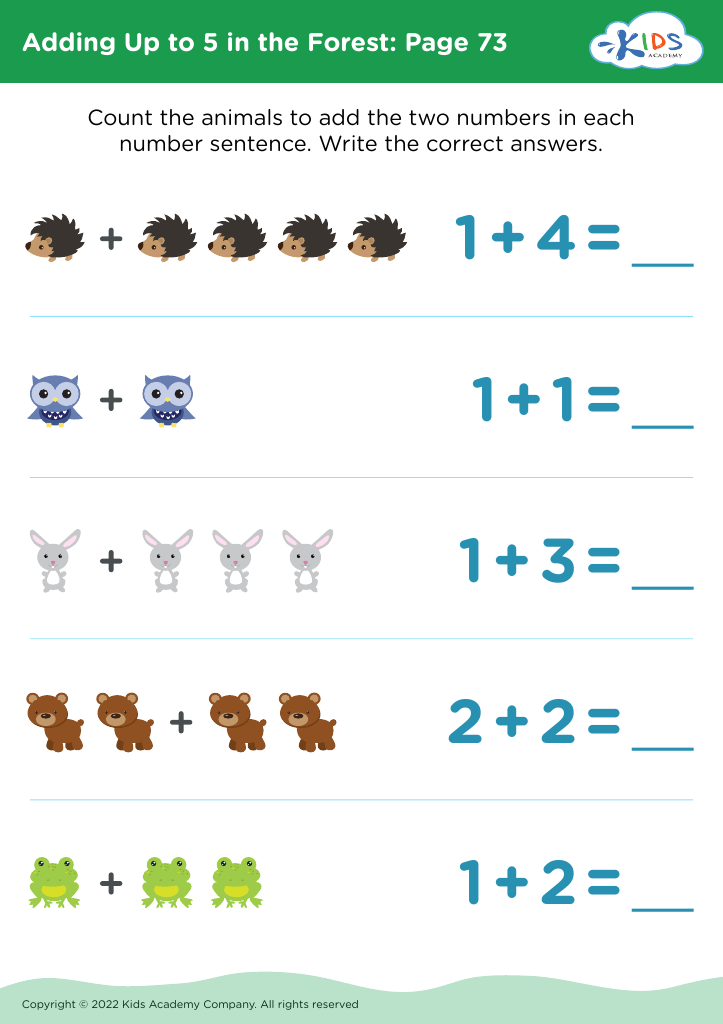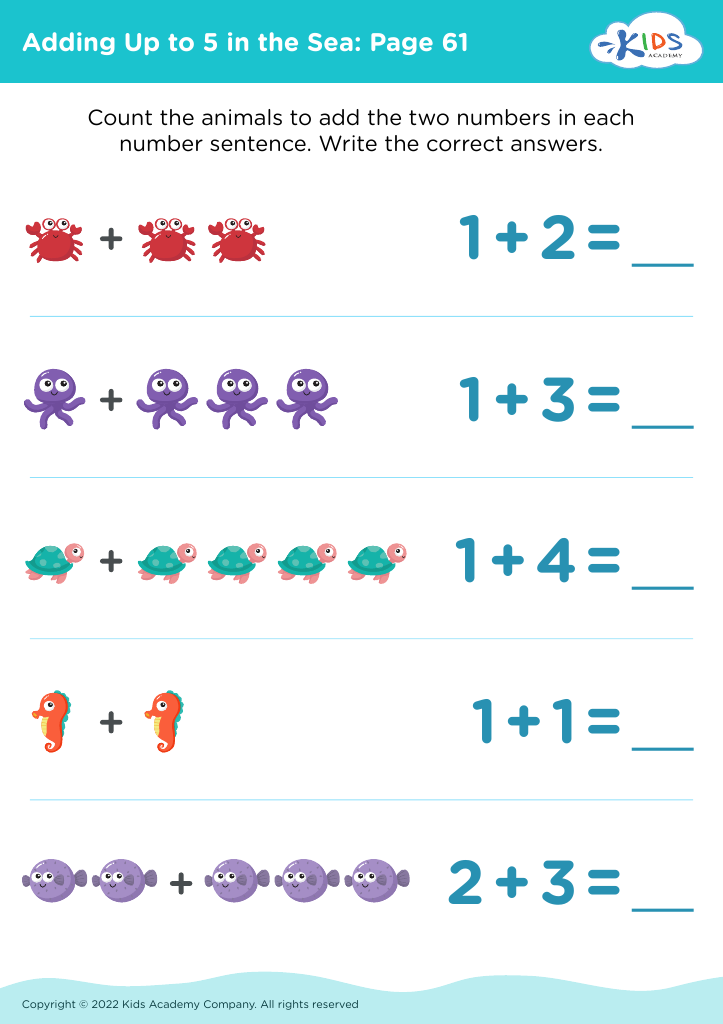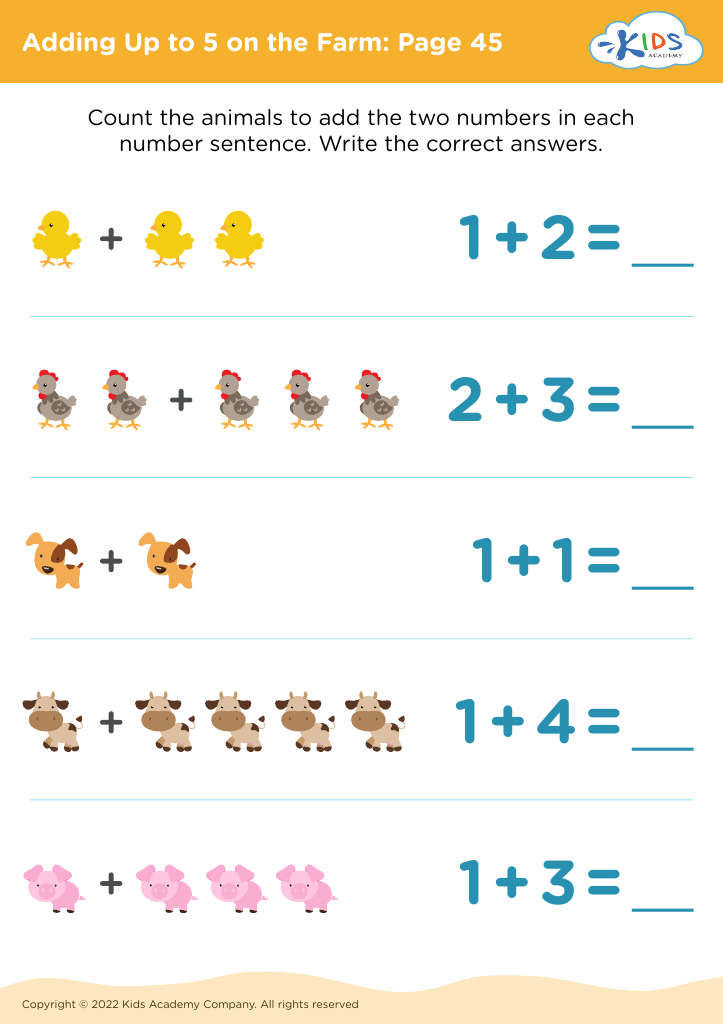Visual-motor skills Adding Up to 5 Worksheets for 3-Year-Olds
3 filtered results
-
From - To
Introduce your little learner to the world of math with our "Visual-Motor Skills Adding Up to 5 Worksheets"! Specially crafted for 3-year-olds, these engaging worksheets blend visual-motor development with foundational math skills. Children will practice addition up to 5 through delightful, age-appropriate activities that combine counting, coloring, and tracing. These worksheets are designed to enhance hand-eye coordination and fine motor skills while making early math fun and accessible. Perfect for at-home learning or classroom use, they provide a solid foundation for future math success. Download now and watch your child’s confidence and skills flourish!
Parents and teachers should place emphasis on developing visual-motor skills and early arithmetic, like adding up to 5, for 3-year-olds because these foundational skills are crucial for cognitive and academic development. Visual-motor skills involve the coordination of visual perception and motor control, which are essential for performing everyday tasks, such as writing, drawing, and manipulating objects. By engaging in activities that combine visual-motor tasks with basic math skills—such as sorting objects, counting on fingers, or using simple puzzles—young children develop fine motor skills and hand-eye coordination, as well as an early understanding of numbers and quantities.
Furthermore, integrating visual-motor skills with early arithmetic sets the groundwork for more complex problem-solving and logical reasoning in future academic pursuits. These skills enhance a child’s ability to concentrate, follow instructions, and develop spatial awareness, which are important for success in both school and life. Investing time in these activities also forms a positive attitude toward learning, fosters curiosity, and helps children perceive learning as enjoyable and rewarding. Therefore, parents and teachers who encourage and support the development of visual-motor skills and early math concepts are giving children a head start in their educational journey and overall cognitive development.






.jpg)












